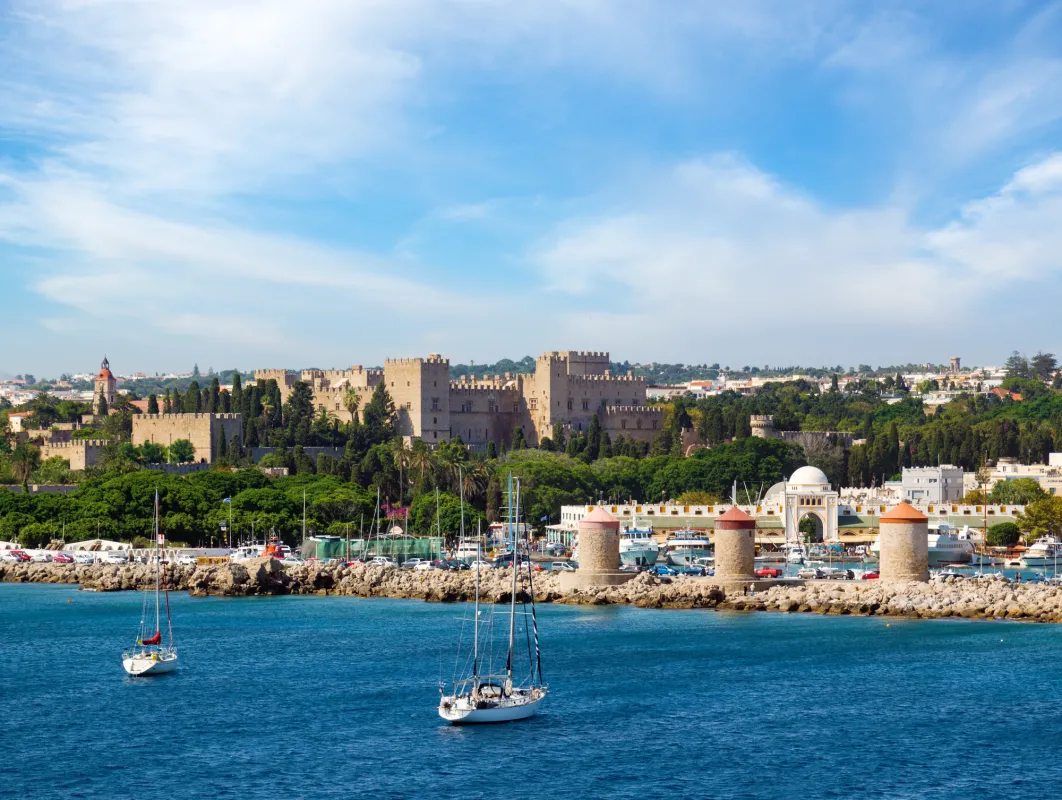Rhodes is one of the largest and most historically significant islands in Greece.
Location: Rhodes is located in the southeastern Aegean Sea. It is the largest of the Dodecanese islands, an archipelago of twelve major islands and numerous smaller ones.
History: Rhodes has a rich and diverse history that spans thousands of years. It was inhabited as early as the Neolithic period, and it played a prominent role in ancient Greek history, particularly during the Classical and Hellenistic periods. The island was known for its prosperity, maritime power, and cultural achievements. It was home to the famous Colossus of Rhodes, one of the Seven Wonders of the Ancient World.
Culture and Heritage: Rhodes has a rich cultural heritage influenced by various civilizations, including the Greeks, Romans, Byzantines, Knights Hospitaller (during the medieval period), Ottomans, and Italians (during the period of Italian rule in the early 20th century). This diverse heritage is reflected in the island’s architecture, cuisine, and traditions.
Tourism: Rhodes is a popular tourist destination, known for its stunning beaches, crystal-clear waters, picturesque villages, and historical sites. The medieval Old Town of Rhodes, a UNESCO World Heritage Site, is particularly famous for its well-preserved fortifications, narrow cobblestone streets, and medieval architecture. Other attractions include the Acropolis of Rhodes, the Ancient Kamiros archaeological site, the Valley of the Butterflies, Lindos village, Kritinias castle, Filerimos Hill and many others.
Climate: Rhodes has a Mediterranean climate with hot, dry summers and mild, wet winters. The island enjoys sunshine for the majority of the year, making it an ideal destination for beach holidays and outdoor activities.
Economy: Tourism is the main driver of the economy in Rhodes, contributing significantly to the island’s GDP and providing employment opportunities for local residents. Agriculture, particularly the cultivation of olives, grapes, and citrus fruits, also plays a role in the economy.
Transportation: Rhodes is well-connected to mainland Greece and other Greek islands by ferry services and an international airport, Diagoras International Airport. The island has a network of roads that make it easy to explore its various attractions.
Overall, Rhodes Island offers a unique blend of natural beauty, historical significance, and cultural richness, making it a popular destination for travellers from around the world.

